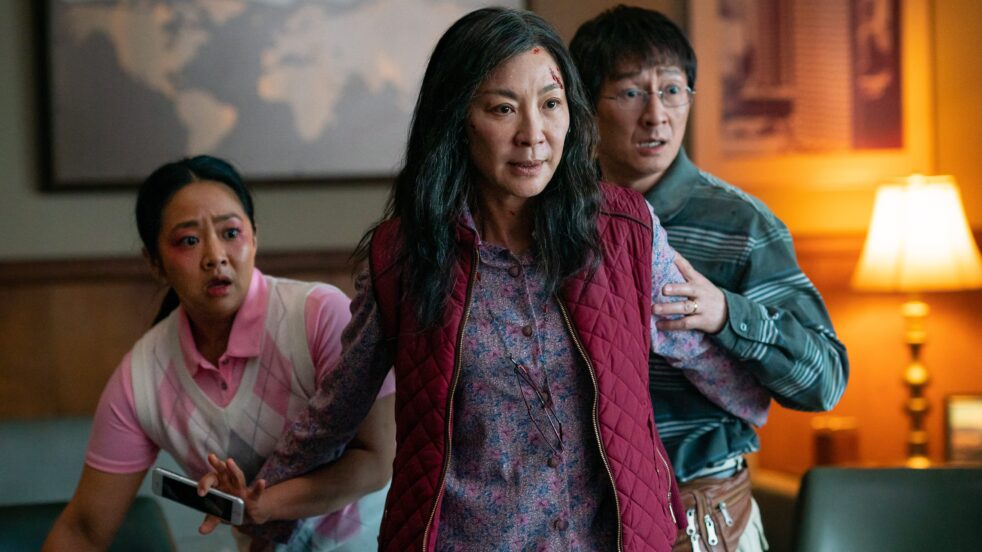“Everything Everywhere All at Once” is one of Hollywood’s most groundbreaking multiversal sci-fi movies, highlighted by its story told through an Asian-American lens.
Michelle Yeoh (“Shang-Chi and the Legend of the Ten Rings”) stars as Evelyn, a Chinese-American laundromat owner being audited by the IRS as universes, family values and whole lifetimes collide before her.
Evelyn’s husband, Waymond (Ke Huy Quan, “The Goonies”), is on the verge of filing a divorce, and Evelyn’s daughter, Joy (Stephanie Hsu, “The Marvelous Mrs. Maisel”) is frustrated with her mother for not accepting her sexuality — and for not accepting anything about her.
As Evelyn struggles to remedy her tax situation and keep the family struggles under wraps, she finds out that all of the multiverse is under attack by a mysterious villain — Jobu Tupaki — and that she is the only Evelyn capable of saving everything.
From the beginning to the end, “Everything Everywhere All at Once” is filled with so much heart, with the intimacy of chaos.
The film grasps you by the shoulders and seems to scream at you — life is fundamentally chaotic.
Life is so meaningless, and so full of entropy and owes you no mercy. You are just one speck in one universe in a tesseract of multiverses, and everything you know and everything that has hurt you could just be the inner imagination of a sentient pebble on the edge of a desolate canyon.
“Everything Everywhere All at Once” denies none of this. So where do we go from there? Is everything, everywhere, really meaningless? In the movie, Evelyn seems to submit to her nihilism.
In the face of the multiverse, the cruelty of her world seems so trivial and absolute, and fighting day-to-day seems almost nonsensical.
In that moment, her husband Waymond, says to her through tears, “You tell me that it’s a cruel world, and we’re all just running around in circles. I know that. I’ve been on this earth just as many days as you. When I choose to see the good side of things, I’m not being naive. It’s strategic and necessary. It’s how I’ve learned to survive through everything. I know you see yourself as a fighter. Well, I see myself as one too. This is how I fight.”
At this moment, the film unveils itself — its mastery of the human condition.
People have always heard that “love is the answer” — that love is something magical and almost supernatural. Love is supposed to be something that has the power to mend any universe, which viewers have seen in Hollywood time and time again.
But what happens if people do not love the same way as everyone else? Not by saying the words “I love you,” but by facing life together — by doing laundry and taxes, by cutting fruit for each other, by making each other’s favorite dishes and by choosing each other in every different multiverse and in every different lifetime.
“Everything Everywhere All at Once” does not tell you that love is the answer.
Because for Evelyn, even love wasn’t enough.
Instead, it is choosing kindness and choosing joy that is the answer to the absurdity of life.
